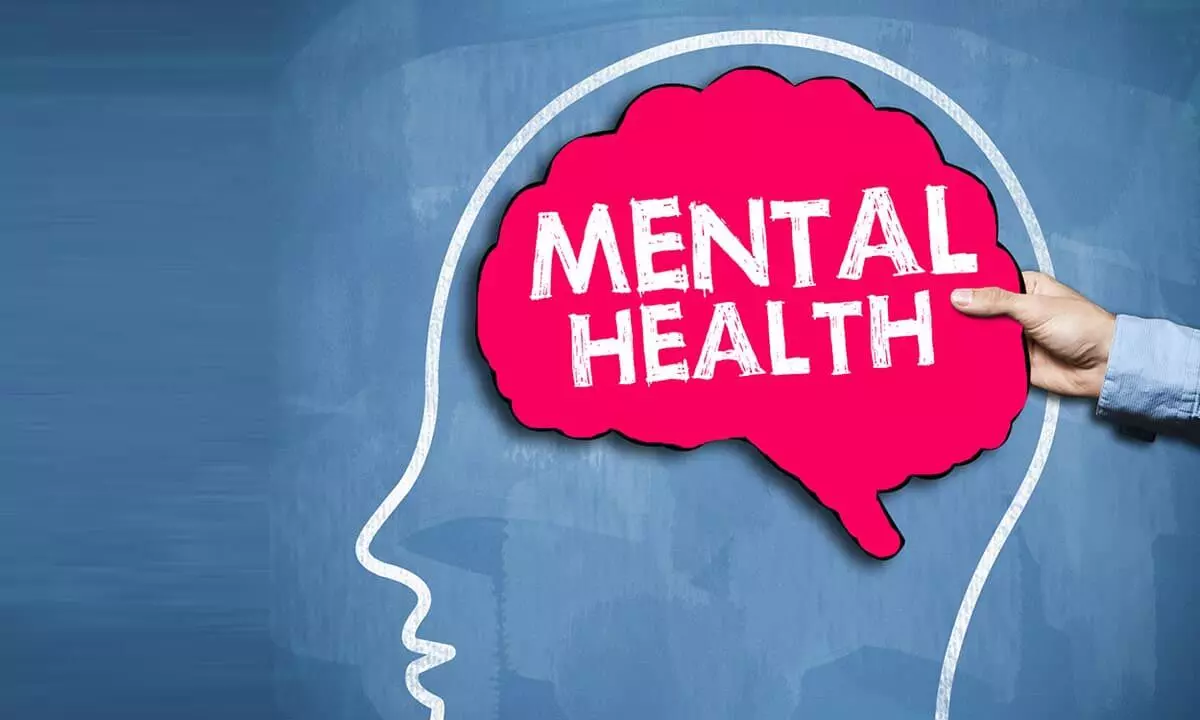Live
- North Korean leader Kim orders mass production of suicide attack drones: KCNA
- Calcutta HC to hear next week plea for CBI probe into death of Jhargram Hospital doc
- Nigeria reports 15,000 AIDS-related deaths annually: Official
- The quicker Mohammed Shami gets fit and is on a flight, it's better for India, says Shastri
- BGT 2024-25: KL Rahul, Sarfaraz Khan suffer elbow in injuries; Virat Kohli taken for scans as India finish first practice session
- Govt’s PAIR programme to boost research, innovation in higher education
- India’s GDP to grow 6.5-7 pc through FY27 over infra, consumption push: Report
- UNIFIL patrol attacked by unknown shooters in Lebanon
- Vinicius misses penalty as Brazil stumble against Venezuela
- UN organisation urges safe passage for food aid to Sudanese states
Just In
Mental health experts stress the vital role of counselling in Indian schools


Mental health awareness initiatives need to be taken by educational institutes to educate parents and fill the gaps, wherever needed, to ensure students' holistic well-being. Educators and students ought to be equipped with tools to identify early signs of emerging mental health issues.
New Delhi: A National Mental Health Survey in India revealed that nearly 14 percent of the population in the country necessitated active mental health interventions. The need to provide mental health support and counselling in schools should be one of the top priorities of educators to ensure their holistic development. India boasts the highest population of children and adolescents in the world and this further necessitates the need to bolster the mental health programmes to facilitate healthy psychological growth of the leaders and policymakers of tomorrow.
Educators, particularly in tier 2 and 3 cities, need to implement effective measures to establish a secure and inclusive school environment, fostering the mental health and well-being of students. Access to counselling and guidance can help cultivate lifelong mental health and well-being in students by nurturing their social and emotional skills. These skills encompass the ability to solve problems, effectively manage everyday stressors, build healthy relationships, and collaborate cooperatively with others, instilling a sense of autonomy and purpose.
“Globally, the School Mental Health Program (SMHP) is acknowledged as a crucial initiative for enhancing the mental health and well-being of school-going children. In India, NEP-2020 emphasises the importance of the mental health and emotional well-being of students. Although NEP penetration is in patches, the policy is gradually addressing mental health issues at a grassroots level, reaching Tier II and Tier III cities.
Dedicated mental health programs all over the world have been able to address or ease student anxiety in the classroom. New York’s School Mental Health (SMH) program is one such example that has led to positive outcomes. India can also implement a nationwide SMHP based on the model of Mental Health Promotion, Prevention, and Early Intervention (PPEI). At the same time, such programs should educate parents and teachers, for a holistic approach in addressing student mental health issues," said Neeraj Kumar, Co-Founder and CEO, of PeakMind.
Mental health awareness initiatives need to be taken by educational institutes to educate parents and fill the gaps, wherever needed, to ensure students' holistic well-being. Educators and students ought to be equipped with tools to identify early signs of emerging mental health issues. Additionally, there should be educational opportunities focused on raising awareness and managing mental health crises, including the risk of suicide or self-harm. It is also essential to address the adverse effects of stigma and cultural attitudes towards mental illness.
Dr. Nimesh G Desai. Senior Consultant Psychiatrist and Public Health professional, Ex-Director IHBAS, echoed the sentiment by stating, "The growing number of mental health issues necessitate the introduction of mental well-being support and guidance at the school level. Since prevention is better than cure, the earlier psychological support structures are put in place, the better. Issues related to academic performance and challenging behaviours faced by students should be factored into school mental health programs.
Frequently overlooked factors include Intellectual and Developmental Disabilities (IDDs), such as mild intellectual disability (previously referred to as Mental Retardation) or Borderline intelligence, which are quite prevalent. Additionally, conditions like Autism Spectrum Disorder (ASD), various types of Dyslexia, and attention deficit hyperactivity disorder (ADHD) necessitate specialised attention alongside ensuring inclusive education and the Right to Education. Moreover, 'conduct disorders' often stem from family issues and bullying, highlighting the need for accessible referral services and providing treatment options to parents and families.
The impact of substance abuse is evident in tier 1 and tier 2 cities, with 55 percent of queries originating from tier 1 and 42 percent from tier 2 cities. Among tier 1 cities, Delhi leads with 30% of queries, followed by Mumbai at 12 percent. Conversely, anxiety and depression are more pronounced in tier 1 cities, constituting 66% of the queries, with Delhi, Bengaluru, and Mumbai ranking as the top three cities.
Notably, queries related to substance abuse reveal a 25 percent increase in alcohol addiction, 53 percent in drug abuse, and 95 percent in withdrawal symptoms. Additionally, there is a 40 percent growth in queries related to eating disorders and PTSD."

© 2024 Hyderabad Media House Limited/The Hans India. All rights reserved. Powered by hocalwire.com






